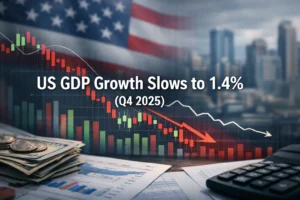In a major step for the cryptocurrency industry, the U.S. House of Representatives passed three important bills on July 17 to regulate digital assets. These laws aim to create clear rules for stablecoins, cryptocurrencies, and prevent the launch of a digital dollar by the U.S. central bank. This marks the biggest move yet by the U.S. government to regulate the crypto industry.
What Was Passed?
1. GENIUS Act – Stablecoin Rules Coming Soon
The Guiding and Establishing National Innovation for U.S. Stablecoins (GENIUS) Act passed with strong support in the House by a vote of 308-122. It already cleared the Senate in June and now heads to President Trump, who is expected to sign it into law soon.
The law creates the first official U.S. framework for stablecoins—digital tokens tied to stable assets like the U.S. dollar. It says:
Issuers must keep full cash reserves or short-term U.S. Treasury bonds.
Monthly financial reports and independent audits are mandatory for large issuers.
Only licensed companies can offer stablecoins.
Misleading claims about government backing will be banned.
This could boost trust in stablecoins like USDC, helping the market grow from $238 billion today to possibly over $2 trillion in the future.
2. CLARITY Act – Defining Crypto Rules
The Digital Asset Market Clarity (CLARITY) Act passed 294-134 and now moves to the Senate. It explains how to decide whether a crypto asset is a “security” (regulated by the SEC) or a “commodity” (regulated by the CFTC). Clear rules like this can help avoid confusion and lawsuits that have slowed innovation in the U.S. crypto space.
The bill gained bipartisan support, though some lawmakers raised concerns. Critics pointed out potential conflicts of interest, especially regarding former President Trump’s links to crypto businesses. Still, many believe this law is a much-needed step forward.
3. Anti-CBDC Act – No U.S. Digital Dollar
The Anti-Central Bank Digital Currency (CBDC) Surveillance State Act passed with a narrower vote of 219-210. It bans the Federal Reserve from issuing a government-backed digital dollar directly to people.
Supporters, mostly Republicans, say a CBDC could lead to privacy issues and government tracking of personal transactions. To ensure it became law, the bill was added to a key military funding package called the National Defense Authorization Act (NDAA).
Political Battle Behind the Bills
These bills were passed after a tense week in Congress. A group of conservative Republicans held up voting until the CBDC ban was added. President Trump reportedly helped move things forward. On July 16, lawmakers voted 217-212 to start debate, and the next day all three bills passed.
Democrats like Rep. Maxine Waters pushed back. They argued the laws don’t do enough to protect consumers and raised concerns about corruption in crypto. A group of Democrats even launched an “Anti-Crypto Corruption Week,” but were unable to stop the bills from passing.
What It Means for Crypto in the U.S.
This is a huge moment for the crypto industry. These new laws could:
Attract more investors to the U.S. crypto market.
Offer legal clarity for companies and developers.
Build trust by regulating stablecoins and banning risky practices.
Companies like Circle, which issues the USDC stablecoin, saw their stock jump nearly 20% as the GENIUS Act moved forward.
What’s Next?
The GENIUS Act is expected to be signed into law by President Trump soon.
The CLARITY Act still needs Senate approval. Senators are working on their own version of the bill, so there may be changes.
The Anti-CBDC Act is likely to become law because it’s part of the NDAA, which usually gets passed.
Final Thoughts
These bills could help the U.S. become a leader in digital finance. Supporters say this will keep the country ahead in financial technology. But critics still worry about risks, especially if there aren’t enough consumer protections or if lawmakers have financial ties to crypto.
As the Senate debates the CLARITY Act, the future of crypto in the U.S. is being shaped right now—and it could change how the world uses digital money.

BBW News Desk is the editorial team of BigBreakingWire, a digital newsroom focused on global finance, markets, geopolitics, trade policy, and macroeconomic developments.
Our editors monitor government decisions, central bank actions, international trade movements, corporate activity, and economic indicators to deliver fast, fact-based reporting for investors, professionals, and informed readers.
The BBW News Desk operates under the editorial standards of BigBreakingWire, prioritizing accuracy, verified information, and timely updates on major global developments.






























Be First to Comment